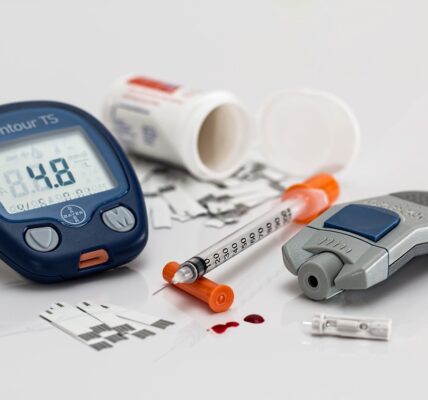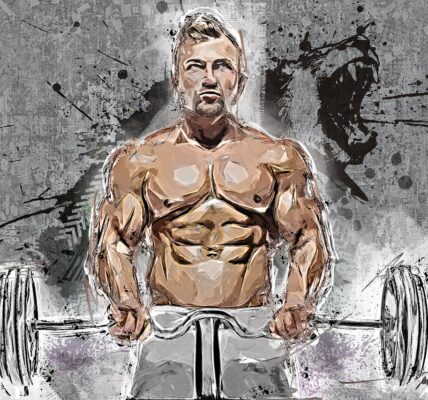A Practical Guide to Understanding Andropause. It’s a thought that often arrives quietly. Perhaps it hits you when you look in the mirror, or when you find yourself struggling for the motivation you used to take for granted.
It’s a subtle but persistent feeling that the engine isn’t running quite right, that the power you once had has begun to fade, just a little. If this sounds familiar, you are not imagining it. This common experience has a name: andropause. Understanding what it is, and what it isn’t, is the first and most crucial step toward taking back control of your health and vitality.
Let’s be clear about one thing from the start. The term ‘male menopause’, which is sometimes used, is misleading. It suggests a sudden stop, a dramatic cliff-edge similar to the female experience.
A man’s journey is different. Andropause is a long, gentle, downward slope—a slow fade that occurs over many years. It is a syndrome, which simply means it’s a collection of symptoms that, together, paint a picture of a body in transition.
What Exactly Is Andropause?
At its core, andropause describes a state linked to the gradual drop in a man’s testosterone levels. Testosterone is the primary male sex hormone, and it has governed everything from your muscle mass and bone density to your sex drive, energy levels, and mood for your entire adult life.
From around the age of thirty, your testosterone levels naturally begin to decline at a slow and steady rate of about one percent per year.
For years, even decades, this decline is unnoticeable. By the time you are in your fifties, however, the cumulative effect of that slow hormonal downshift can become significant.
The fade becomes tangible, and you start to feel the results. While andropause is a natural part of the ageing process and not a disease, its symptoms can seriously impact your quality of life. Recognising them for what they are is the key to addressing them effectively.
Reading Your Body’s Signals
he symptoms of andropause are varied and can touch every part of your life. They often creep up so slowly that it’s easy to blame them on other things, like a stressful job, getting older, or just not sleeping well. When viewed together, however, they reveal a clear pattern.
Physically, you might feel a deep-seated fatigue, a weariness that a good night’s sleep doesn’t seem to fix. Your get-up-and-go has simply got-up-and-gone.
You might notice a decrease in your physical strength, and your body composition may be changing, with muscle mass decreasing while stubborn fat accumulates around your midsection. This is a classic sign, directly linked to falling testosterone and a consequently slower metabolism. Aches, pains, and longer recovery times after exercise also become more common.
The toll is not just physical; it’s mental and emotional, too.
Many men report experiencing ‘brain fog’—a sense of mental slowness that makes concentration difficult and memory feel less sharp.
Your motivation and competitive edge can feel blunted, and you might find yourself more irritable, with less patience for life’s daily annoyances.
For some, this can manifest as a persistently low mood or a loss of enthusiasm for hobbies and passions you once enjoyed. Inevitably, this can erode self-confidence, leaving you feeling like a stranger to the man you used to be.
This hormonal shift also frequently leads to changes in the bedroom, a subject that can be difficult to discuss.
A declining libido, or sex drive, is a primary symptom.
This is not a reflection on your relationship, but a direct result of changing chemistry. At the same time, you might experience difficulties with erectile function, which can become less reliable. This is an incredibly common part of the andropause experience and one that can cause significant stress if not understood in its proper context.
What Can You Do About It?
Reading this list of symptoms can feel disheartening, but the most important message is one of empowerment. You are not powerless. You can actively fight back to manage these symptoms and improve your hormonal health, and the work starts with your lifestyle.
Exercise is your most powerful weapon, but the type of exercise matters.
Resistance training—lifting weights, using bands, or doing structured bodyweight exercises—is non-negotiable.
It sends a powerful signal to your body to produce more testosterone and it directly combats muscle loss. This should be paired with regular cardiovascular exercise to protect your heart, manage your weight, and boost your mood.
What you eat has a direct impact on your hormones.
Focus on a diet of whole, unprocessed foods, with plenty of high-quality protein to support muscle maintenance and healthy fats from sources like avocados, nuts, and olive oil to aid hormone production.
Crucial micronutrients like Zinc and Vitamin D are also vital.
Conversely, a diet high in sugar and processed foods can disrupt your hormonal balance and should be limited.
Never underestimate the power of sleep. Your body produces the most testosterone during your deep sleep cycles, so if you are not getting seven to eight hours of high-quality rest per night, you are fighting a losing battle. Finally, you must learn to tame chronic stress.
The stress hormone, cortisol, is a testosterone killer. When cortisol is high, testosterone is low. Finding healthy outlets, whether it’s a long walk, a hobby that absorbs you, or a simple mindfulness practice, is essential for your hormonal health.
The Medical Route A Word on TRT
In some cases, lifestyle changes are not enough to resolve the symptoms of andropause.
In these situations, Testosterone Replacement Therapy (TRT) might be an option.
This is a medical treatment that restores your testosterone to a healthy range and can be very effective.
However, TRT is not a magic bullet or a casual decision. It requires a proper clinical diagnosis from your GP, including blood tests to confirm low testosterone levels.
Once started, it is a serious, lifelong commitment that requires regular monitoring and has potential side effects. It should only ever be considered after a thorough conversation with your doctor.
Andropause is a real and often challenging part of a man’s life. But its symptoms are not a life sentence; they are a signal.
They are a call to action from your body, a prompt to pay closer attention and to become a more active participant in your own health. Knowledge is the first tool, and action is the second.
This isn’t an ending. It’s the beginning of a new chapter—one where you can take ownership of your wellbeing with the wisdom and strength you’ve earned over a lifetime.
0



